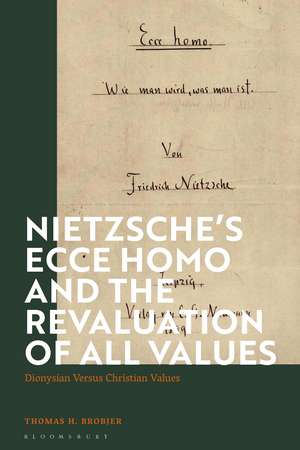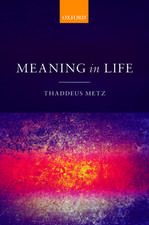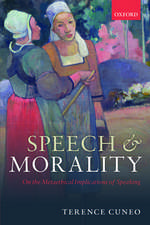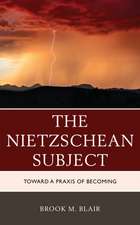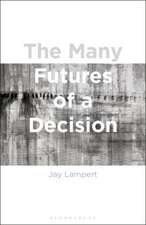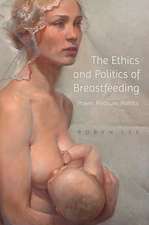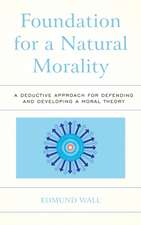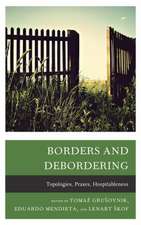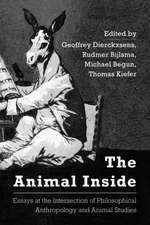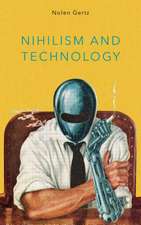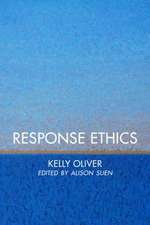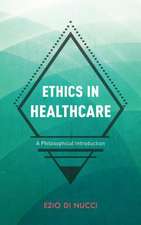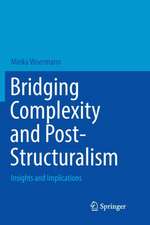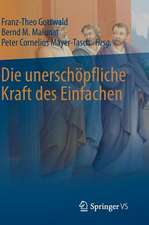Nietzsche’s 'Ecce Homo' and the Revaluation of All Values: Dionysian Versus Christian Values
Autor Thomas H. Brobjeren Limba Engleză Paperback – 27 dec 2023
| Toate formatele și edițiile | Preț | Express |
|---|---|---|
| Paperback (1) | 190.59 lei 6-8 săpt. | |
| Bloomsbury Publishing – 27 dec 2023 | 190.59 lei 6-8 săpt. | |
| Hardback (1) | 568.22 lei 6-8 săpt. | +119.60 lei 4-10 zile |
| Bloomsbury Publishing – 25 aug 2021 | 568.22 lei 6-8 săpt. | +119.60 lei 4-10 zile |
Preț: 190.59 lei
Preț vechi: 248.97 lei
-23% Nou
Puncte Express: 286
Preț estimativ în valută:
36.47€ • 37.94$ • 30.11£
36.47€ • 37.94$ • 30.11£
Carte tipărită la comandă
Livrare economică 15-29 aprilie
Preluare comenzi: 021 569.72.76
Specificații
ISBN-13: 9781350194304
ISBN-10: 1350194301
Pagini: 210
Dimensiuni: 156 x 234 x 25 mm
Greutate: 0.3 kg
Editura: Bloomsbury Publishing
Colecția Bloomsbury Academic
Locul publicării:London, United Kingdom
ISBN-10: 1350194301
Pagini: 210
Dimensiuni: 156 x 234 x 25 mm
Greutate: 0.3 kg
Editura: Bloomsbury Publishing
Colecția Bloomsbury Academic
Locul publicării:London, United Kingdom
Caracteristici
Original and detailed analysis of Nietzsche's last work, Ecce Homo, highlighting its philosophical purpose beyond categorisation as simple autobiography
Notă biografică
Thomas H. Brobjer is Professor of Intellectual History at Uppsala University, Sweden.
Cuprins
1. The Revaluation of All Values as the Purpose of Ecce Homo 2. The Presence of the Revaluation of All Values in Other Later Books and Letters3. Reading Ecce Homo as Preparatory to Nietzsche's Revaluation of All Values4. The Last Chapter, "Why I Am A Destiny," as Preparatory to the Revaluation of All Values5. The Roles of Zarathustra and Dionysos in Nietzsche's Ecce Homo and Late Texts6. What Can We Learn about the Revaluation of All Values from Ecce homo and Late Texts?Appendix: Outline, Summary and Chronology of Ecce homoNotes Bibliography of Nietzsche literatureIndex
Recenzii
Thomas Brobjer's book on Ecce homo presents Nietzsche's autogenealogy in a provocative new way. It is a challenge particularly for Anglophone Nietzsche scholars engaged in rather scholastic debates. The study demonstrates how Ecce homo is intended to prepare Nietzsche's late main project of a "transvaluation of all values" ("Umwerthung aller Werthe") and how this project has to be reconsidered.
Brobjer avoids dichotomising between Ecce Homo as autobiography and as a philosophical work, recognising the interconnection between Nietzsche's life and philosophy. Employing thorough analysis of letters and drafts, Brobjer takes a distinctive approach to Ecce Homo as preparing a revaluation of values, while advancing important reflections on the symbol of Dionysius.
This book.. heralds a great future for Nietzsche scholarship, for what it calls and awakens a hunger for is the revaluation of both the Nachlass and Nietzsche's final two books.
Brobjer avoids dichotomising between Ecce Homo as autobiography and as a philosophical work, recognising the interconnection between Nietzsche's life and philosophy. Employing thorough analysis of letters and drafts, Brobjer takes a distinctive approach to Ecce Homo as preparing a revaluation of values, while advancing important reflections on the symbol of Dionysius.
This book.. heralds a great future for Nietzsche scholarship, for what it calls and awakens a hunger for is the revaluation of both the Nachlass and Nietzsche's final two books.
